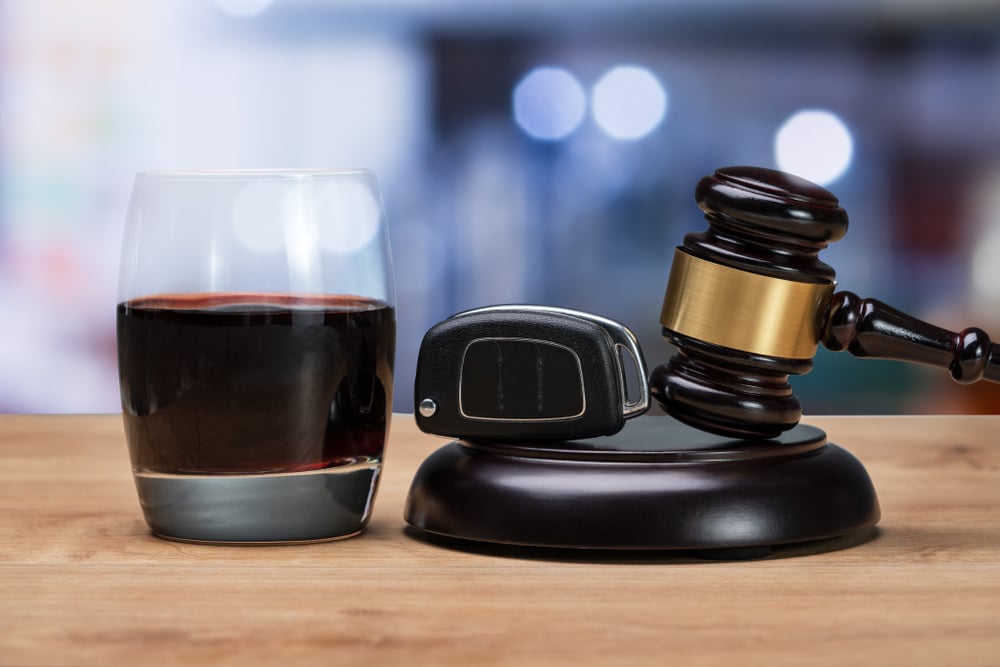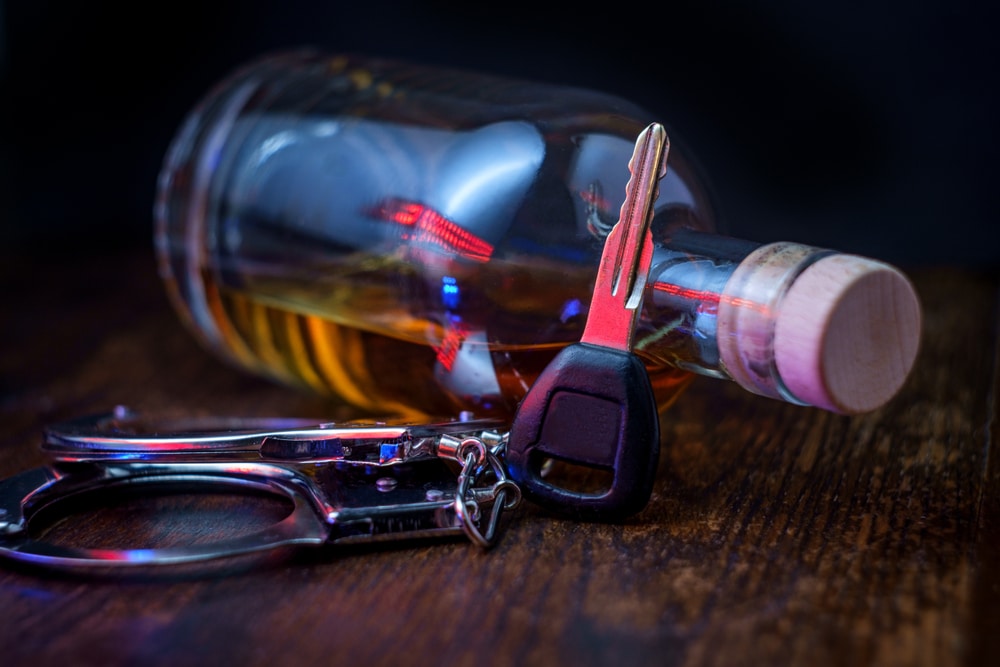
Louisiana enforces strict Operating While Intoxicated (OWI/DUI) laws with a per se blood alcohol concentration (BAC) limit of 0.08% for drivers 21 and over, and 0.02% for drivers under 21. The state implements implied consent laws requiring drivers to submit to chemical testing when requested by law enforcement with reasonable suspicion of impairment.
Enforcement efforts adapt to Louisiana’s unique geography, from urban New Orleans to rural bayou communities. The state’s cultural ties to festivals, celebrations, and tourism create distinct enforcement challenges requiring specialized strategies and increased vigilance during peak tourist seasons.

0.08% or higher for regular drivers and 0.04% for commercial drivers

Yes

Varies

Conditional

Yes (0.15%+)
Louisiana’s DUI landscape reflects its diverse character, encompassing major tourist destinations, rural parishes, and coastal communities. The state’s rich cultural heritage, including Mardi Gras and numerous festivals, creates unique contexts for alcohol consumption and enforcement patterns.
Rural parishes face distinct challenges with limited enforcement resources and emergency response capabilities. The presence of major tourist destinations, gaming establishments, and entertainment districts influences both enforcement strategies and prevention efforts.
First-time OWI offenders in Louisiana face between 10 days and 6 months in jail (which may be suspended upon completion of community service), fines ranging from $300 to $1,000, and license suspension for 90 days. The state employs a 10-year lookback period for determining repeat offenses.
Multiple offenders face increasingly severe penalties, with third and subsequent offenses classified as felonies. Mandatory penalties include substance abuse evaluation, driver improvement programs, and ignition interlock devices for certain offenses.
Louisiana imposes enhanced penalties for aggravating circumstances including high BAC levels (0.15% or higher), causing accidents with injuries or fatalities, and the presence of minors in the vehicle. These circumstances can result in mandatory jail time, increased fines, and extended license suspensions.
The state maintains specific provisions for commercial drivers, with a lower BAC limit of 0.04%. Special considerations apply during Mardi Gras season and other major festivals, with increased enforcement and specific protocols for handling large crowds and tourist populations.
Louisiana law enforcement utilizes comprehensive strategies including routine patrols, saturation patrols, and sobriety checkpoints. Officers receive specialized training in DUI detection, with additional focus on handling tourist-heavy areas and special events.
The state coordinates enhanced enforcement during festivals, holidays, and major sporting events. Special attention is given to waterway enforcement, particularly in bayou communities and areas with water-accessible entertainment venues.
Louisiana employs state-approved breath testing instruments for both roadside screening and evidentiary testing. Fixed testing locations at detention centers provide certified equipment, while mobile testing units serve rural parishes and special events.
The state maintains certified laboratories for blood and urine testing, with established protocols for sample collection and chain of custody. Modern technology including body cameras and digital evidence management systems supplements traditional detection methods, particularly important in tourist-heavy areas where documentation of behavior is crucial.
Louisiana offers various treatment options through certified providers, ranging from education programs to intensive treatment. Programs must meet state certification requirements and address both alcohol and drug abuse issues, reflecting the state’s substance abuse challenges.
The state emphasizes accessibility of treatment services across diverse geographic regions, from urban centers to rural parishes. Programs incorporate cultural sensitivity while maintaining evidence-based practices, particularly important in communities with distinct cultural traditions.
Louisiana requires comprehensive substance abuse assessments for all OWI offenders, with treatment requirements based on assessment results and offense history. The state’s framework addresses both alcohol and drug dependencies, with particular attention to regional substance abuse patterns.
Treatment programs must meet state certification standards and demonstrate effectiveness. Requirements typically include education components, counseling sessions, and may escalate to intensive outpatient or residential treatment for repeat offenders or those with high BAC levels.


Louisiana implements multi-layered monitoring through courts, probation departments, and treatment providers. The state utilizes various tools including random drug and alcohol testing, scheduled check-ins, and ignition interlock devices to ensure compliance.
Special attention is given to monitoring during festival seasons and in tourist areas where violation risks may increase. Electronic monitoring systems and remote testing options help bridge geographic barriers while maintaining program integrity.
Louisiana operates a dual-track system processing OWI cases through both criminal courts and the Office of Motor Vehicles. Administrative license actions begin immediately upon arrest, independent of criminal proceedings, with drivers having limited time to request administrative hearings.
The state maintains separate procedures for test failures and refusals, with refusals resulting in longer suspension periods under implied consent laws. Administrative actions focus on specific statutory requirements while criminal proceedings address broader legal issues.
Administrative hearings examine limited issues including proper notice, testing procedures, and reasonable grounds for the stop. Hearing officers review evidence including officer reports, testing records, and relevant documentation to determine the validity of license actions.
The process includes provisions for hardship licenses, particularly important in areas with limited public transportation. Appeals must follow strict timeframes and procedures through district courts.
Louisiana courts process OWI cases through established criminal procedures, with some jurisdictions operating specialized DUI courts focusing on rehabilitation. The court system maintains specific protocols for handling cases during peak tourist seasons and festivals.
Judges work within statutory guidelines while considering aggravating and mitigating factors. First-time offender programs may be available in certain jurisdictions, though eligibility has become more restricted in recent years, particularly for high BAC cases.
Key agencies include the Louisiana State Police, Office of Motor Vehicles, Department of Health and Hospitals, and Highway Safety Commission. The Office of Motor Vehicles manages licensing and administrative hearings, while Health and Hospitals oversees treatment programs.
District attorneys and the Attorney General’s office handle criminal proceedings, coordinating with local law enforcement and probation departments. The State Police Crime Laboratory provides forensic testing and expert testimony services.
Louisiana coordinates with neighboring states through interstate compacts sharing driver information and enforcement efforts. The state’s position along major interstate corridors and its tourism industry creates significant cross-border enforcement challenges.
Border regions require special attention due to different alcohol sales regulations and casino operations. The state maintains protocols for handling out-of-state licenses and ensuring consistent treatment of violations, particularly important during major events attracting interstate visitors.
Louisiana contains multiple jurisdictional layers including state, parish, municipal, and federal lands. Cases involving military installations, waterways, and federal properties require specific protocols and inter-agency coordination.
Tourist areas and entertainment districts present unique jurisdictional questions regarding enforcement authority and coordination. Special considerations apply to cases involving casino properties, festival grounds, and waterfront venues.
First-time OWI offenses in Louisiana typically result in costs exceeding $10,000 when accounting for fines, fees, legal expenses, and increased insurance premiums. Repeat offenders face substantially higher costs, often exceeding $25,000.
The state allocates significant resources to enforcement, particularly during major events and festivals. Additional economic impacts include lost tourism revenue due to accidents, property damage, and negative publicity from OWI incidents.


Louisiana communities bear substantial burdens from OWI incidents, particularly in areas with limited emergency services. The state’s tourism industry and festival culture create unique challenges regarding alcohol awareness and prevention.
Social impacts extend beyond direct costs to include family disruption, workplace effects, and strain on medical services. Rural parishes face particular challenges with limited treatment options and transportation alternatives.
Recent legislative focus includes addressing drug-impaired driving and updating penalties for high BAC offenses. The state considers updates to testing procedures and penalty structures to address emerging substance abuse patterns.
Proposed legislation examines treatment alternatives and monitoring technologies, with emphasis on serving both urban and rural communities. There is increasing attention to ride-sharing services and alternative transportation options, particularly in tourist-heavy areas.
Louisiana implements advanced enforcement technologies including electronic citation systems and digital evidence management. Law enforcement agencies utilize data analytics to identify high-risk locations and times for targeted enforcement.
The state explores new monitoring technologies while addressing challenges of rural connectivity. Implementation considers geographic barriers and access issues particular to bayou and rural communities.
Louisiana faces increasing challenges with drug-impaired driving, particularly involving prescription medications and synthetic drugs. The state’s tourist areas and festival seasons create unique patterns of substance use and impaired driving risks.
The gaming industry and entertainment districts present ongoing challenges for enforcement and prevention. Changes in social attitudes and transportation options, particularly in rural areas, present new enforcement and prevention challenges.
Louisiana implements comprehensive prevention strategies targeting various demographics, with special attention to youth and tourist populations. Programs include school-based initiatives, community outreach, and partnerships with tourism and hospitality industries.
The state provides specialized education for service industry workers and gaming employees. Prevention efforts adapt to local needs, with different approaches for urban centers versus rural parishes.
OWI convictions in Louisiana significantly impact employment opportunities, particularly in tourism, hospitality, transportation, and maritime industries. Commercial drivers face severe consequences, including mandatory disqualification periods and potential career-ending implications.
Professional license holders, including casino employees, healthcare workers, and educators, may face disciplinary actions. The state’s tourism-based economy creates unique challenges for workers in service industries, where transportation and clean driving records are often essential.
Louisiana tracks treatment outcomes through standardized reporting systems, showing varying success rates across different program types. Urban and rural programs face distinct challenges with accessibility and resources, often requiring different approaches to delivery.
Programs incorporating local community support and addressing regional-specific challenges show improved outcomes. The state continuously evaluates program effectiveness, adjusting requirements based on outcome data and demographic needs.
OWI convictions in Louisiana result in significant insurance consequences, with premium increases often exceeding 250%. Insurance companies require SR-22 certification for high-risk drivers, with coverage requirements lasting at least three years.
Multiple offenses may result in policy cancellation or non-renewal, creating additional barriers for rural residents with limited insurance options. The state monitors insurance compliance through electronic verification systems.


Louisiana mandates SR-22 insurance filings for OWI offenders seeking license reinstatement. The filing must be maintained continuously for the required period, typically three years, with automatic license suspension for any coverage lapse.
The state maintains strict monitoring of SR-22 compliance through electronic reporting systems. Requirements include maintaining coverage above minimum liability limits, creating significant financial burden particularly for rural residents.
OWI convictions in Louisiana create significant challenges, particularly acute in rural parishes with limited public transportation. License suspensions impact essential activities including work, medical appointments, and family responsibilities.
Financial burdens from fines, fees, and increased insurance costs can create long-term economic hardship, especially in communities with limited employment options. Social stigma and professional impacts may be particularly challenging in small, close-knit communities.
Louisiana’s OWI/DUI enforcement and prevention system reflects its unique character as a state with diverse geography and cultural traditions. The framework combines strict enforcement with rehabilitation opportunities while addressing the specific challenges of serving populations across varied landscapes, from urban centers to rural bayou communities.
The state’s strong ties to tourism, festivals, and the gaming industry create distinct circumstances for both enforcement and prevention efforts. The presence of major tourist destinations, entertainment districts, and limited public transportation options presents unique challenges for both enforcement and rehabilitation programs.
The legal system maintains clear consequences while providing paths to recovery through structured treatment and monitoring programs. Administrative procedures work alongside criminal proceedings to ensure swift action while maintaining due process rights. The state’s approach recognizes the need for specialized considerations regarding seasonal events, tourist populations, and cultural factors.
The economic and social impacts of OWI convictions are particularly significant in rural parishes, affecting employment opportunities, family stability, and access to essential services. Treatment and rehabilitation programs must overcome challenges of geographic distance and limited resources, often requiring innovative solutions including mobile services and regional coordination.
Recent developments focus on addressing emerging challenges such as drug-impaired driving and the integration of new enforcement technologies, while maintaining sensitivity to both urban and rural needs. The state continues to adapt its approach through legislative updates and program evaluations, ensuring effectiveness across its diverse geographic and demographic landscape.w
At DUI 101, our mission is to empower you with the knowledge needed to make informed decisions during this challenging time. Explore our articles and guides to better understand your situation and the steps ahead.
© 2024 Chapman SEO LLC. This website is for educational and informational purposes only. All content is created using AI technology and maintained by non-lawyers and should not be considered legal advice. The information provided is general in nature and may not be suitable for your specific situation. Always consult with a qualified legal professional for advice regarding your individual circumstances. We do not create attorney-client relationships through this website. By using this site, you acknowledge that you have read and understand these terms.